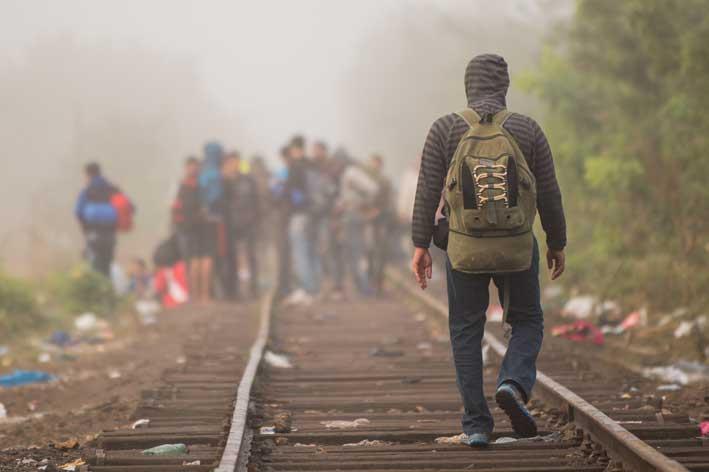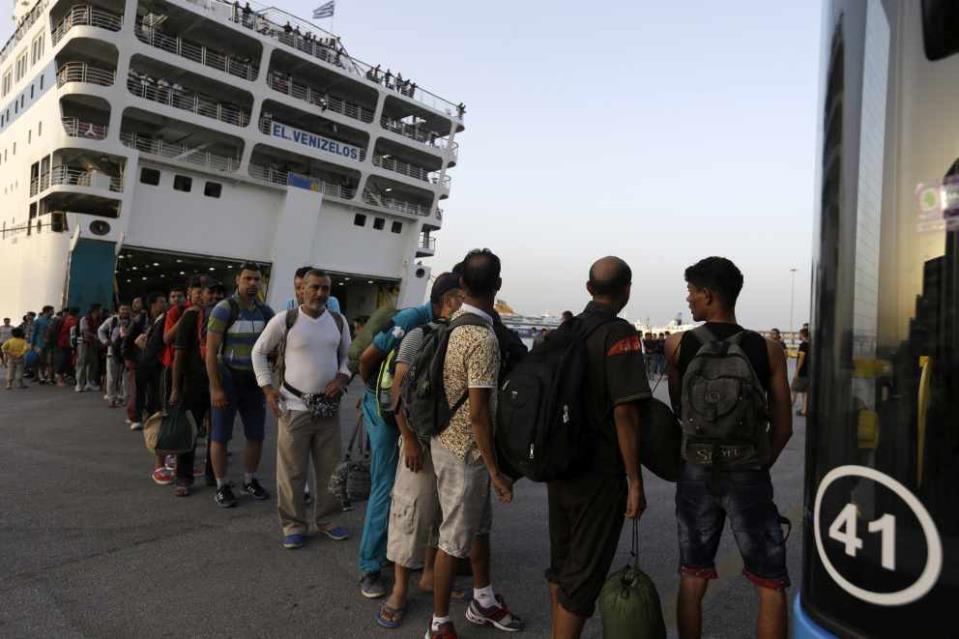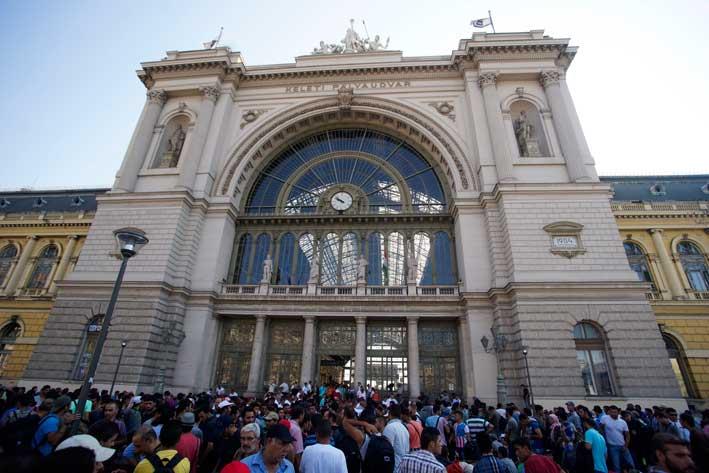Conciliation replaced confrontation among European nations which have clashed over their response to a wave of migration, as thousands of asylum seekers streamed into Croatia on Saturday in hopes of chasing a new future in Western Europe.
Hungary has announced that it has removed spools of razor wire from a section of the border with Slovenia, a barrier that had been seen as breaching European Union rules about unrestricted travel within much of its territory. The gesture followed the reopening of the border between Croatia and Serbia.
The concessions, coming two days after a European Union summit on the crisis, suggest that the 28-nation bloc had become alarmed at the lack of cooperation among members and the increasingly ugly tone of their exchanges. The squabbling had hampered efforts to help the people fleeing war and poverty from the Middle East, Africa and Asia.

Hungary's closure of its border with Serbia on Sept. 15 triggered a series of responses that sent migrants scurrying from one border to the next as they tried to reach Germany, Austria and other European countries that have offered safe haven.
Croatia first welcomed the migrants, thinking they would transit through Slovenia, into Austria and on to Germany. But Slovenia refused to let the people pass, leaving Croatia, one of the poorest EU nations, responsible for them. The government in Zagreb then accused Serbia of shunting the refugees into its territory and closed the cargo crossing in retaliation.
After Croatia opened the border with Serbia, its prime minister, Zoran Milanovic, appeared on Serbia's main television station to explain his actions. Likewise, Serbia's leader, Aleksandar Vucic appeared on Croatian television. The exchanges were testy in both interviews, but the fact they occurred suggested movement to address tensions between Croatia and Serbia, old rivals who fought a war amid the breakup of Yugoslavia in the 1990s.

Hungary's Prime Minister Viktor Orban, also changed his tone. He promised to consult with others before Hungary completes a razor-wire fence along its border with Croatia, a move that would insert more confusion into an already difficult situation in the Balkans.
Djorjde Vlajic, a commentator and acting editor-in-chief of Serbia's state Radio Belgrade 1, said the apparent softening of hard-line positions was the result of EU pressure on the smaller players to resolve their differences because the bloc must develop a unified response to the immense wave of refugees that is still on its way.
"The only countries ruffling the sea are the countries that will not solve the problem in the end, the transit countries," Vlajic said. "So, 'Teacher Europe' said enough, stop and wait until serious players figure out how to solve this," he said.

Hungary's conciliatory gesture came after Orban traveled to Vienna for talks with Austrian Chancellor Werner Faymann. Austrian officials have been critical of Hungary's border fences, saying they damaged bilateral relations.
Orban got the message, toning down his often nationalistic diatribes.
The concessions will ultimately smooth the way for the migrants, many of whom spent a miserable night in the open, in the rain. Croatian authorities said some 66,000 had entered Croatia since Hungary shut its border with Serbia.
Croatia has been busing migrants to Hungary, and is demanding that Serbia do the same — rather than diverting the asylum seekers to Croatia. Ranko Ostojic, Croatia's interior minister cited the Strosinci crossing, on the border with Serbia, as being particularly problematic.
"There's a lot of people on the Serbian side," he said. "My opinion is that this is a torture for the people."